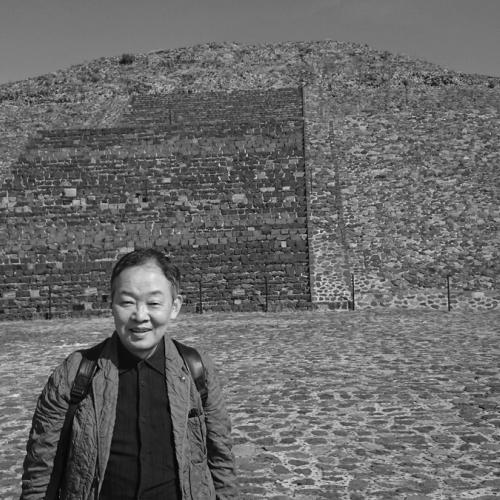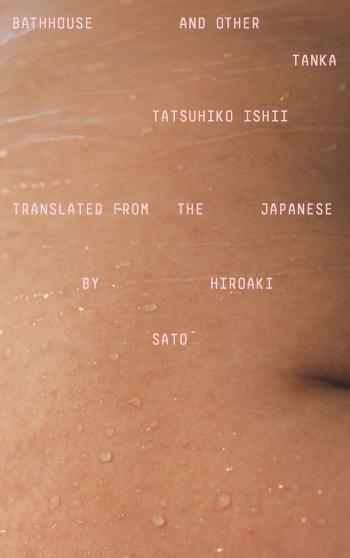Translated by Hiroaki Sato
“Only when a man becomes all naked do you know the shades of his life as an existential being,” writes Tatsuhiko Ishii in his sensuous, exhilarating new collection of poetry Bathhouse and Other Tanka. For many decades now, Ishii has turned the classical poetic form of the tanka into its own innovative contemporary tradition. What was originally a five line 5-7-5-7-7-syllable verse form Ishii writes in one line, constructing his poems out of sequential one-line tankas, as if Basho and Lorca bathed together under the moon. In moving elegies to Yukio Mishima and Genji (the Shining Prince), tributes to Ezra Pound and Claude Lorrain, as well as to the volcanoes Popocatépetl and Mount Fuji, Ishii’s poetry resonates with a mix of philosophical lyricism, inquisitive exuberance, and homoerotic desire. “The ocean plane shines in the sun,” he writes in one poem in the aftermath of 9/11. “From now on every place will be a battlefield, sure.” In one sequence, we glimpse Proust through a photograph by Paul Nadar, in another clipping pubic hair and washing a horse become a rumination about real poetry. Ishii pens songs of momentary love and flames of lust, of mankind’s self-destruction and the self mirrored in the seven deadly sins. No other poet today can write about sniffing a young man in Tokyo or Tasmanian oysters like Ishii does with such majesty. Hiroaki Sato, the bestselling author of On Haiku, has been translating Ishii for over thirty years and captures the rhythmic pulse and turn of his “Poetry … harmful, a dream. Even the world, finally, due to poetry, liquefies …”

